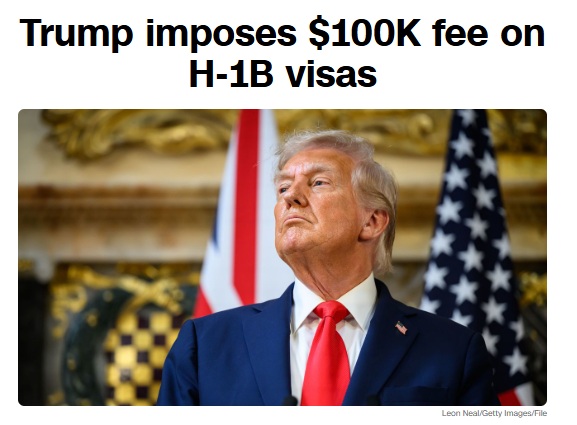The Impact of Trump Administration Policies on H1B Visas

Introduction
The H1B visa program has long been a vital avenue for foreign professionals to work in the United States, particularly in specialized fields such as IT and engineering. The policies surrounding this program have significant implications not just for foreign workers, but also for the U.S. economy and industries relying on skilled labor. Under the Trump administration, new policies were introduced that aimed to tighten eligibility for H1B visas, sparking considerable controversy and debate.
Main Changes to H1B Visa Policies
In 2017, shortly after taking office, former President Donald Trump signed an executive order aimed at reforming the H1B visa program. This order sought to prioritize the hiring of American workers and implement stricter requirements for companies looking to sponsor foreign employees. Key changes included:
- Increasing scrutiny on the qualifications of H1B applicants, with heightened emphasis on ensuring that visa holders possess specialized skills.
- Implementing a wage-based selection system to prioritize visa approvals for higher-paid positions, thereby reducing chances for lower-wage positions often exploited by tech companies to save on labor costs.
- Enhancing the provisions for monitoring and enforcing employer compliance with labor laws, aimed at preventing misuse of the program.
In addition to these measures, the administration frequently expressed its support for a merit-based immigration system, which some viewed as an attack on the current employment-based visa policies.
Consequences of Policy Changes
The impact of these policy shifts has been significant. Many businesses, especially those in tech, reported challenges in hiring qualified foreign workers, leading to gaps in talent acquisition. Some companies had to increase salaries to meet the new wage criteria, while others opted to reduce their overall reliance on H1B workers, choosing instead to invest in training American workers.
Conclusion
As we move forward, the long-term effects of these changes continue to unfold. The Biden administration has hinted at a willingness to revisit and reform H1B visa processes again, potentially reversing some of Trump’s policies. For businesses and foreign workers alike, the future of the H1B visa program remains uncertain, and its implications will continue to be a hot topic in immigration and labor debates. Navigating the landscape of H1B visas will require stakeholders to stay informed on evolving regulations, ensuring compliance while also advocating for fair and equitable treatment of all workers in the U.S.









